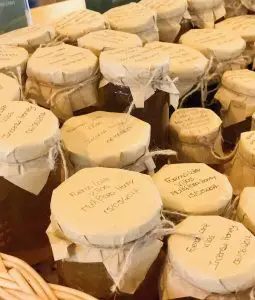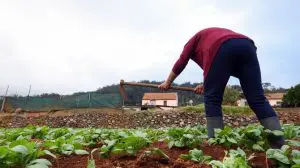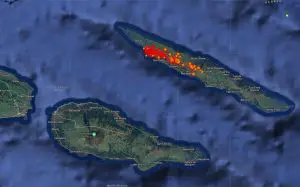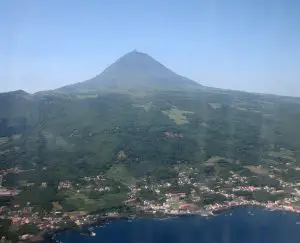Bullfighting resumes on Terceira
After two years of inactivity.
“Ganadeiros hope for the resumption of rope bullfighting on Terceira island” reports Açoriano Oriental (“ganadeiros” literally translating into “breeder of fighting bulls”).
The newspaper reports that the rope bullfighting season on Terceira Island starts today, day and Azorean cattle ranchers are confident that 2022 will be the year of recovery, after two years of practically no activity, due to the Covid-19 pandemic.

“This year 2022 is already expected to see some recovery. Most of the bullfights are those that were contracted in 2020. Many of the commissions kept their word and what was contracted ”, advanced, in statements to press agency Lusa, by the president of the Regional Association of Bullfighting Breeders, Sónia Ferreira.
There are rope bullfights on several islands in the Azores, but it is mainly on Terceira that they are most important, with more than two hundred bullfighting events taking place every year, with thousands of participants.
Unlike square bullfights, rope bullfights take place in the streets, on routes limited by risks and closed to traffic, with bulls tied by ropes, with no charge for tickets or entry control.
During the pandemic, the events were advised against by the Regional Health Authority, which again gave the green light for them to be held at the end of the 2021 season.
The regional legislative decree that establishes the legal regime for activities subject to licensing by municipal councils in the Autonomous Region of the Azores only allowed rope bullfights to be held between May 1 and October 15.
The Azorean Parliament approved, however, a decree that allowed the exceptional performance of bullfights until November 15 in 2021 and the anticipation of the 2022 season to the Monday after Easter.
The first two rope bullfights this year are scheduled for Saturday, one in the municipality of Angra do Heroísmo and the other in the municipality of Praia da Vitória, with another four scheduled by the end of the month.
According to Sónia Ferreira, this anticipation of the season will allow bullfighting to be carried out already under contract, without interfering with the traditional calendar of rope-fighting.
“A large part of the bullfights in April were the bullfights that were acquired by the Municipality of Angra do Heroísmo and offered to the parish councils”, he revealed.
In 2020, the municipality paid the cattle breeders a bullfight for each parish in the municipality, to compensate for the loss of income, with the commitment that they would only take place when the pandemic situation allowed.
The association’s president even said that the cattle ranchers only managed to “survive”, for almost two years, without income, thanks to the support given by the Azorean executive and by some municipalities.
“The Regional Government gave support in 2020 and 2021. The Municipality of Angra do Heroísmo and Praia da Vitória supported the cattle ranchers that had activities in their municipalities in 2019 and the Municipal Council of Santa Cruz da Graciosa collaborated with the cattle ranchers of its county”, he advanced.
With the end of restrictions to contain the covid-19 pandemic, cattle ranchers expect activity to return to normal this year, but fear that the economic crisis will affect the sector.
“Of course, times are not easy and we hope there will be no significant price reductions agreed upon. Unfortunately, we know that what was agreed in 2020 may now undergo some changes for 2022”, explained Sónia Ferreira.
Although the number of bullfighting demonstrations may suffer a slight reduction, this year, the president of the association hopes that the quality of the shows will not be affected.
“I think that the bullfights that were traditional will continue. In non-traditional ones, there may be some oscillation, which may change the number of bullfights. The main thing is not so much the quantity, but that the quality of the bullfights that were given before is maintained”, he stressed.
Sónia Ferreira defended that the tradition is not at risk of disappearing due to the interregnum caused by the pandemic and gave as an example the “public turnout” in the few bullfights held last year.
“Rope bullfighting is something that identifies us a lot as a people. Socially, it was something we already craved. She has a framework in our life and in our parties, which everyone already looked forward to”, she underlined.






